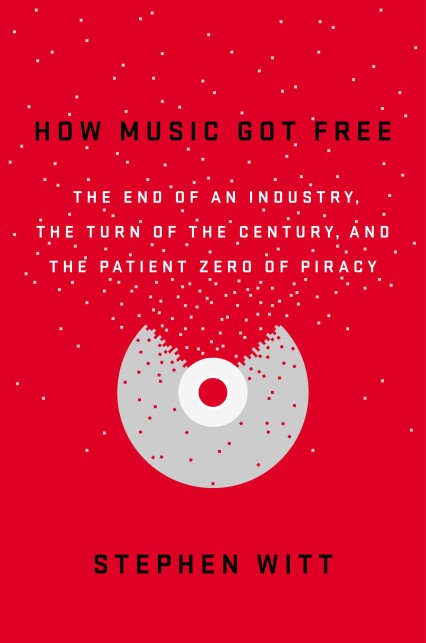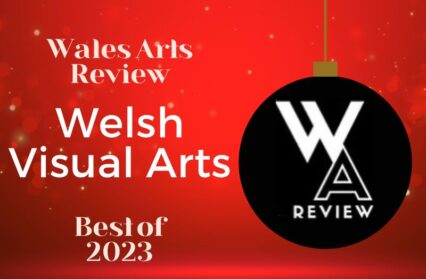In Part Three of our cultural highlights of 2015, we sing the praises of another wide array of creative achievements, taking in Welsh literature, theatre, the Brooklyn Book Festival, and much much more…
Cultural Highlights of 2015:
Mao Oliver-Semenov
Commenting from Siberia it’s hard to say anything about art in Wales seeing as I’m not there, and as a new father I don’t see anything of the Siberian art world either. However, this isn’t to say that there haven’t been moments I have enjoyed in 2015. What has pleased me the most this year, albeit from afar, is seeing some of my fellow comrades in the arts thrive. People I knew who genuinely deserved recognition; with more talent in the tips of their toes than I’ll ever enjoy myself; who, four years ago when I lived in Wales were already producing some of the most outstanding and noteworthy short-stories, novellas, and poetry, all managed to produce more, larger and higher quality work.
Eluned Gramich, who I knew only as a cog in the Parthian Books machine, went on to win the New Welsh Writing Award; Gary Raymond, who I knew only as a short story writer and editor went on to publish an astonishingly beautiful debut novel; Sion Tomos Owen, one of the greatest political poets Wales has ever produced, finally got the book deal he deserved; and of course, Rebecca F. John, who when I knew her had only published one short-story ever, went on to win… um… every major award in the world. When she made it onto the Sunday Times short-story shortlist I found myself telling anyone and everyone who would listen in and around Krasnoyarsk, even if they didn’t read. I felt so proud. I do feel proud, not only of the fact that everyone mentioned above are fellow comrades from one or two of Parthian Books’ new Welsh writing anthologies, but of the fact that when people in Siberia ask me if there is anyone worth reading in Wales, anyone at all who is worthy of note in contemporary literature, I can say, unequivocally and without any hesitation whatever, yes – more than you can imagine and of a quality to rival even the great Russian masters.
Emily Garside
Who or what is Hamilton? Well in the words of the Broadway rap-hip-hop musical in question he’s “A bastard orphan son of a Scotsman and a whore. The ten dollar founding father without a father” Alexander Hamilton, chief aide to George Washington, influential interpreter of the U.S constitution, the face of the ten dollar bill and now star of a hip-hop musical on Broadway given new life by composer Lin-Manuel Miranda.
It hasn’t re-invented the musical theatre wheel as some have suggested. It has given it a slick re-worked design that’s brought many people who wouldn’t normally look at musical theatre to admire the craftsmanship. That is the great thing about Lin-Manuel’s work he unashamedly embraces a range of genres and interests and puts them all in the work. A fusion of musical styles from his own personal loves, he’s defying the conventions of what musical theatre and music should be. Hamilton topped the Billboard charts for a rap album. And a quick peek into social media reveals young people are embracing Hamilton like they did Rent two decades before. It’s always exciting when a new piece invigorates interest in a genre. It’s an exciting thing to see as a long standing musical theatre fan, when something grabs the imagination and brings new people in.
Hamilton is clever in a way that doesn’t feel laboured or pretentious. There are layers and layers to be unpicked, references to the history it’s based on, references to musical theatre history, nods to rap and hip hop history and integrated musical elements that are brilliantly integrated and executed.
Of course brilliant works can be brilliant and not move you. Initially I was sceptical about Hamilton, the product rarely living up to the hype, but for me, Hamilton came along at the right time. I fell in love with the score in a way I haven’t for years.
Personally, there were also themes that resonated with me. Sometimes you discover the right pieces of art at the right time. I was one of those musical theatre kids two decades ago discovering Rent, and now, Hamilton also hit me in the right way at the right time. Hamilton’s describes himself as “Like my country I’m young scrappy and hungry” fiercely ambitious but frustrated at his inability to get where he needs to go. There’s an ambition the composer Miranda shares with Hamilton, the refrain he puts through his musical “Why do you write like you’re running out of time?” which echoes how I feel often as well, but also that inspires me.
I won a lottery ticket to see the show. Sheer luck. I confess, I cried a bit. It’s not often that the sheer anticipation of seeing something you never thought you would kicks in. That alone in theatre is thrilling enough-the idea that, to quote Hamilton again you get to be “in the room where it happened” and being in that room sometimes stays with you for a while to come. The final refrain of Hamilton is the question ‘Who tells your story?’ it’s inspiring to see this semi-forgotten figure’s story, but also opened up to me, as the best art does, who is telling my story?
Laura Kenwright
Spencer Jones’ hour of utterly delightful character comedy is my cultural pick of 2015. Spencer is a wildly popular figure with critics and audiences alike and rightfully so. His character The Herbert, in his second hour-long outing, is an endearing loser, blessed with painfully bad luck, who deals with and regales the s*** life throws at him through interactions with physical objects, sound effects and warm audience interaction. To contextualise Spencer; he’s a bit Monty Python, a bit Morecambe and Wise, a bit Tommy Cooper and a bit Charlie Chaplin.
The Herbert questions what a ‘proper job’ is – timely and topical, but this isn’t a political show. At its heart is a personal dilemma that many can empathise with– should you give up your creative dreams and ambition in order to work in a ‘proper job’ that guarantees money for your family, but a broken heart and loss of identity with it?
 The stage is packed with a bizarre array of objects, all of which play a crucial role in the story, existing as other characters, or as effects in the show’s exploration of what it is to exist as an adult in 2015. Like the best stories – nothing is surplus to requirements; every utterance and stage prop is integral to the story, even the polystyrene head and goggle-eyed mop with false teeth. Especially that, actually.
The stage is packed with a bizarre array of objects, all of which play a crucial role in the story, existing as other characters, or as effects in the show’s exploration of what it is to exist as an adult in 2015. Like the best stories – nothing is surplus to requirements; every utterance and stage prop is integral to the story, even the polystyrene head and goggle-eyed mop with false teeth. Especially that, actually.
This is exquisite storytelling – my eyes leak with laughter and on occasion, with sadness too. His storytelling occasionally hints at the techniques of Daniel Kitson; masterful peaks of laughter and peaks of poignancy delivered with just the right amount of pathos.
Like the best clowns, Spencer has an absolute riot on stage and welcomes the audience into his joyful world with open arms (that are usually equipped with something bizarre but sensical – a Neanderthal head wearing a policeman’s hat he tells us he bought for a lot of dollar online, or a doll with a fox’s head etc. etc.).
The three main reasons ‘The Herbert in Proper Job’ is my pick of the year are: 1) for Spencer’s lack of ego, 2) for his ability to tell a story so beautifully and uniquely; 3) how when sat in the audience, I don’t care that I freely honk and snort with delight, go through my repertoire of cackles and leave looking like I’ve been stood in a storm for an hour (eyes messed and creased with tears of joy, hair frazzled with larger than normal body movements).
This is a must-see live experience – wonderfully anarchic and still wonderfully accessible. I want all my friends and family to see him.
He is so good he should be prescribed on the NHS.
Zoe Ranson
Brooklyn Book Festival is a remarkable event with over 50 scintillating panels featuring writers from emerging voices to veterans (this year’s heavyweights included Salman Rushdie, A.M. Homes and local literati Jonathan Lethem) talking on a variety of themes from stories in translation to the role of the internet. All are accessible and free-of-charge – something missing from the UK’s literary calendar on this scale.
The most interesting and insightful of these discussions included playwrights and Whiting Award fellows Lucas Hnath, Anne Washburn and Virginia Grise – all known for performances that rely heavily on the presence of an audience and, to some degree, their participation/engagement. Hnath’s recent production The Christians, was staged in a church with the cast intermingled in the pews with the audience, whilst Washburn’s recent piece 10 out of 12 takes place during the technical rehearsal of a play. The audience are given headsets so they can listen to discussions and commentary from offstage whilst watching the onstage action play out, revealing in obsessive and tedious detail the process of theatre-making.
The chair Lisa Kron (writer of the Tony award-winning Funhome) moderated a discussion which plunged into the writers’ need to involve the audience in their work. She also touched on an illuminating point – expectations. Theatre relies heavily on an imbalance of power. It’s this imbalance that separates it from other forms of writing – there is always someone present who knows less than everyone else, whether that’s a character on stage or a member of the audience.
The boundaries and parameters of theatre allow travel through time and space and the ingenuous power of repetition, amongst other theatrical tropes, to create these effects with only language is boundless.
The Flick by Annie Baker won the Pulitzer Prize in 2014 and it’s no surprise that the play – deceptively simple (as all great things are) was one of the best pieces of theatre I’ve seen in years. Set in a movie theatre threatened by closure it is a three-hander with a mundane set-up (monotonous popcorn sweeping, apparently pointless word games) that builds over three hours to an emotionally charged pay-off. Bound by their love of movies the characters repartee vascillates between terse and tender with magnificent ease. Matthew Mayer as Sam, doomed to perpetuate the ‘walk-through’ for the foreseeable future, captured the sense of desperation of being trapped in an inferior role, mingled with acceptance that this is what his life is. Rose is a fantastic character for a young female actor, complex and thrillingly real. The political as personal is addressed in a staggering reversal of roles. I highly recommend reading the script, but the great news is, it’s on it’s way to the UK. The Flick runs at National Theatre from April 2016.
Michael Lydon
 is many an adage exclaiming the importance of story. Epic words by the canonised living and dead, shouting to us in bold of the importance of an engaging, interesting, and even moving narrative. Fact or fiction. Prose, poetic, or dramatic. It matters not, as story is king. Yet, often in reading story becomes secondary, as we are, particularly within academic setting, distracted by style – taken by an artist’s command of language, her or his beauty or boldness with letters. Their way of expressing story indicates the worth of their art, while story takes a back seat. In Stephen Witt’s How Music Got Free: The End of an Industry, the Turn of the Century, and the Patient Zero of Piracy, story is very much to the fore, and for this reason it stands out as an artistic highlight for 2015.
is many an adage exclaiming the importance of story. Epic words by the canonised living and dead, shouting to us in bold of the importance of an engaging, interesting, and even moving narrative. Fact or fiction. Prose, poetic, or dramatic. It matters not, as story is king. Yet, often in reading story becomes secondary, as we are, particularly within academic setting, distracted by style – taken by an artist’s command of language, her or his beauty or boldness with letters. Their way of expressing story indicates the worth of their art, while story takes a back seat. In Stephen Witt’s How Music Got Free: The End of an Industry, the Turn of the Century, and the Patient Zero of Piracy, story is very much to the fore, and for this reason it stands out as an artistic highlight for 2015.
In fact, Witt’s How Music Got Free tells not one story but three. First, it tells the story of the German audio-engineers who developed the mp3, tracking its rise to the dominant means via which music – or data – is received and importantly shared. Second, Witt reveals the story of American music executive Doug Morris, a towering figure in the global music industry who, for better or worse, has shaped, and continues to shape, global popular music. Both stories are of interest, and in many ways deserve a complete book to themselves; however Witt’s third story overshadow these narratives, and propel How Music Got Free to the literary highlight it is, as Witt reveals the story of Dell Glover – An American blue-collar worker who arguably brought the music industry to its knees. Through Glover, the reader is given an insight into the fascinating internet sub-culture of illegal mp3 file sharing, where FBI and other National law-enforcing agents are never too far away, and from where shadowing unknown figures have changed the music industry forever.
In Witt’s How Music Got Free, it is the fascinating true story of, well, how music got free that captivates. Yet also it is the story of Glover, the hard working father and husband who lived two lives, and whose actions still impact every musician and music fan today.
As for how the story is told. Lets just say it is told well, with Witt’s style expressing the story with some literary skill. But, in this case, let us just exclaim it is the story that is important.
Cath Barton
Like, I imagine, many readers, I thought the title of Owen Sheers’ novel I Saw a Man was going to relate to whatever was going on in Michael Turner’s neighbour’s house on a Saturday afternoon in June. But no, although what it does relate to is as shocking as the event Michael witnesses on that afternoon (something I will not give away for those who have yet to read this excellent book). It relates to the awful, visceral reality of an unmanned drone strike. Owen Sheers’ writing about this made me grasp, for the first time, what this really means for the people involved, perpetrators and victims, and is the scene which, from all the books I have read this year, remains with me most strongly. A desert place where a man is throwing down food for chickens is where, moments later, body parts are vaporised in the 5,000 degree heat of a Hellfire missile. Bodies of people who loved and were loved by others.
Journalists write stories too, but they tend to steer clear of emotions, or at least of the inter-twining of emotions that can be explored in a novel. This is not about the difference between fact and fiction; truth can be found in either. What engaged and shocked me in ‘I Saw a Man’ was being presented with the global nature of war on a personal scale. Daniel McCullen is a man who has dropped bombs from planes over Afghanistan but come home to the suburbs of Las Vegas with the intention to put his family first. From here he still flies missions, remotely. But on his screen he sees the consequences, and it nearly destroys him.
The ‘man’ who Daniel’s colleague sees moments before the strike can be averted is in fact a woman, Michael Turner’s journalist wife. Daniel knows this. He knows his culpability. Owen Sheers inter-weaves the stories of Michael, his neighbours and Daniel across the world. I was gripped by the story, I admired the writing and, above all, I am grateful for the way it opened my eyes to a ghastly aspect of ‘modern’ warfare. In these dark days in which politicians who claim to act in our names are largely compounding the problems of the world, the arts have a role to play in enhancing our understanding of the terrible. And only if we understand are we are equipped to engage.
Kevin McGrath
While the Downtown Boys’ debut single, the coruscating punk polemic “Slumlord Sal”, may well have been the most exciting blast of American rock ‘n’ roll to penetrate the airwaves since a fresh-faced Jonathan Richman cut his nostalgia fuelled classic “Roadrunner” fully 43 years ago, the bilingual combo’s latest release, on New Jersey’s Don Giovanni records, “Wave of History” is very much its enraged equal. Part pugnacious thrash, part intellectual critique of capitalism, “Wave of History” sees The Rhode Islanders radically appropriate elements of XRay Spex, Minor Threat and The Pixies in order to forge the best protest song of the decade.
Against a sui-generis cacophony of twin sax and strident guitar, social worker Victoria Ruiz doesn’t so much sing as harangue the capitalist class at the top of her voice; a gambit, which, in the age of the Corbynista fully complies with today’s clenched-fist zeitgeist as well as being roundly entertaining! Ruiz’s understanding of global capitalism’s terminal tailspin, however, goes well beyond lumpenproletariat sloganeering, and with union activist / guitarist Joey L De Francesco also well versed in the nuances of political science, the band’s 23 minute long sophomore album Full Communism proves the multi-racial sextet to be a credible conduit for the ground level activism they seek to inspire through their oppositional music.
The record’s accompanying video, an infographic clarion-call to overturn systemic American racial injustice, shot by underground designer and film-maker Faye Orlove, reinforces the group’s revolutionary cojones. Staking out a trail of unvanquishable facts that, taken together, trace the country’s blood-curdling history, from the genocide of the native American Indian through the slave-revolts of the 18th and 19th century to the on-going Black Lives Matter movement, “Wave of History” is part party political broadcast, part teaching aid, part PowerPoint pop-promo and, truly, the most thrillingly informative way you can spend 1.57 seconds of your precious time during 2015.
For Part One of our 2015 Cultural Highlights selections click here, and for Part Two you can click here












